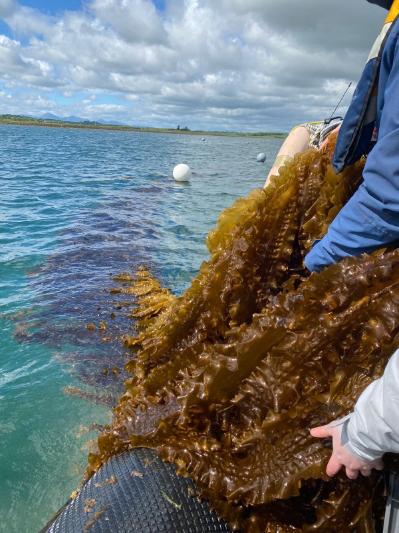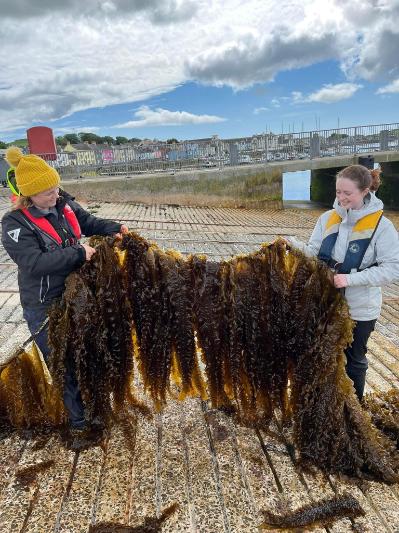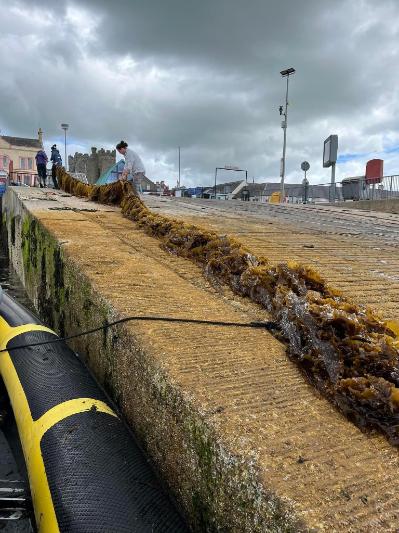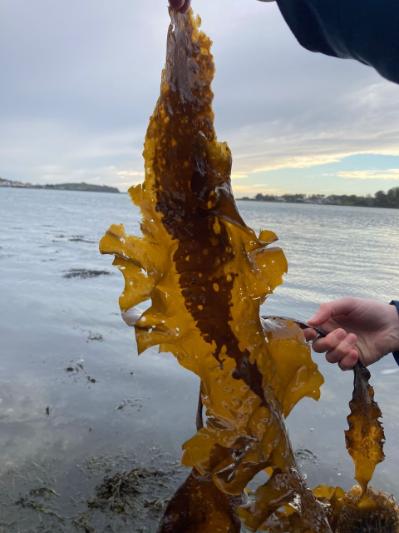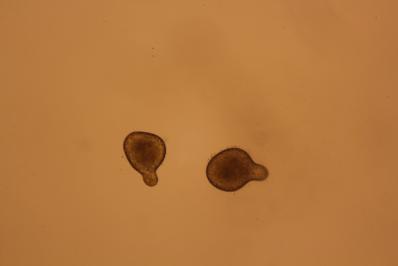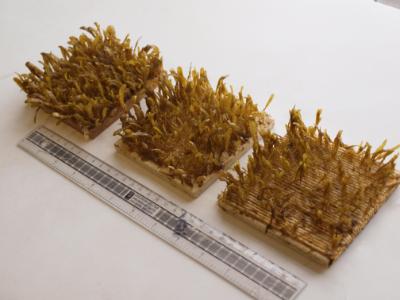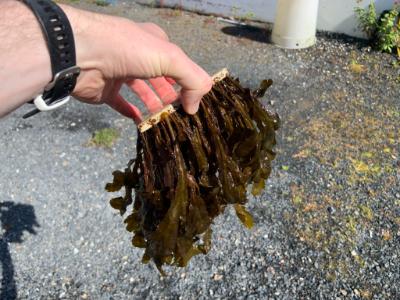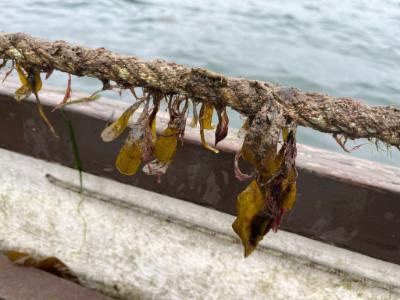Seaweed Research
Aquaculture
Our seaweed projects are conducted using our on-site macroalgal nursery facility which has UV treated seawater, controlled temperature and light conditions, and a range of different aquaria to suit any sized project. At QML, we also have a 7 ha experimental seaweed farm based in the neighbouring Strangford Lough (the only one of it's kind in Northern Ireland!) which is fully equipped for cultivating tonnes of seaweed biomass for research purposes.
Producing seaweed biomass for research projects is one of our specialties. See how we do it using the following links Creating macroalgal cultures, Transfer to longlines and onward growth
Detrital Pathways of Kelp
In collaboration with Aberdeen University, through the QUADRAT DTP, we are investigating the environmental drivers which have the greatest impact on the decomposition of kelp, and what this means for the transport and deposition of detrital material such as carbon in offshore environments. Find out more about Molly and their project below!
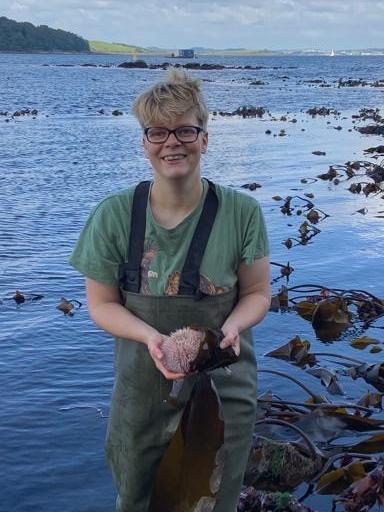
"Seaweed research is really taking off across the world and its fantastic to see so many projects happening at QML across a variety of disciplines from carbon storage potential to improving cultivation efficiency and investigating their use in animal feed. I'm excited to be part of a project that allows me to develop a myriad of skills, including metabarcoding, fatty acid extraction and offshore survey techniques." Molly Crowe
PhD student (NERC QUADRAT DTP)
Queen's University Marine Laboratory (QML)
Seaweeds for animal health
As well as growing kelp, we are currently undertaking a multidisciplinary cross-border research project called SeaFEED which focuses on the sustainable cultivation of local fucoid species and the utilisation of their bioactive compounds for improving agricultural practices. As part of this, we are also investigating ways of stimulating bioactive production in cultivated fucoids to make them more effective as antimicrobials in animal feed.
Genetics
We are also investigating the genetic population structures of both wild and farmed sugar kelp S. latissima. By identifying specific traits within different kelp populations around Northern Ireland's coastlines we will highlight the most ideal sites for seaweed aquaculture.
Sustainable Seas
In line with the global push for reducing our reliance on single-use and synthetic materials, we are currently conducting research into the use of natural woolen materials for kelp farming. This Sustainable Seas project based at QML is a partnership between the Marine Materials Research Group (MMAG) and Twool, an innovative wool company, and seeks to increase the sustainability of seaweed aquaculture practices in future and therefore help to conserve the marine environment.
History
There has been an extensive history of seaweed research at Queen's University Marine Laboratory with projects including the sustainable harvesting of Ascophyllum nodosum and cultivation of Palmaria palmata, among many others, dating back to the late 1970s. With influential phycologists such as Prof. Matt Dring and Prof. Chris Maggs paving the way for many others to follow, we are still conducting seaweed research nearly 50 years later.
Find out more about the history of seaweed research at QML here
Contact us
If you are interested in our work, have any queries, or would like to get involved, send an email to the Seaweed Research Group: seaweed@qub.ac.uk
Seaweed Research Group contacts: Emma Healey (Senior Technician), Dr Pamela Walsh, Dr Mánus Cunningham

